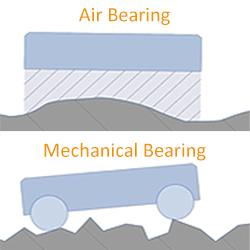Forbes Names FANUC a Top Global Innovator for the Fourth Consecutive Year
FANUC CORPORATION, the leading manufacturer of CNCs, robots, and ROBOMACHINEs, has been named one of the top 100 innovative companies in the world by Forbes. This is the fourth consecutive year Forbes has named FANUC a top global innovator.
ROCHESTER HILLS, Mich.--FANUC CORPORATION, the leading manufacturer of CNCs, robots, and ROBOMACHINEs, has been named one of the top 100 innovative companies in the world by Forbes. This is the fourth consecutive year Forbes has named FANUC a top global innovator.
Forbes 2014 "The Worlds Most Innovative Companies" list recognizes leading-edge corporations that are most likely to be innovative now and in the future. The Forbes innovation list is based on a study completed by professors and advisors who determined that calculating a companys value plus anticipated growth fueled by new technology and products will identify the most innovative companies. A key factor used in compiling this list was each companys commitment to R&D. Embedded in each of these companies is a code for innovation discernible in their people, processes and philosophies that drive them to keep innovation alive year after year. The end result is that innovation will create demand for their products now and in the future.
About FANUC CORPORATION
FANUC CORPORATION, headquartered at the foot of Mt. Fuji, Japan, is the worlds leading manufacturer of CNCs, robots, and ROBOMACHINEs. Since its inception in 1956, FANUC has contributed to the automation of machine tools as a pioneer in the development of CNC equipment. FANUC technology has contributed to a worldwide manufacturing revolution, which evolved from the automation of a single machine to entire production lines.
Featured Product

PI USA - Hexapods for 6-Axis Precision Automation
PI Hexapods simplify multi-axis alignment / positioning with a programmable pivot point, tool/work coordinate systems, virtual programming software.
